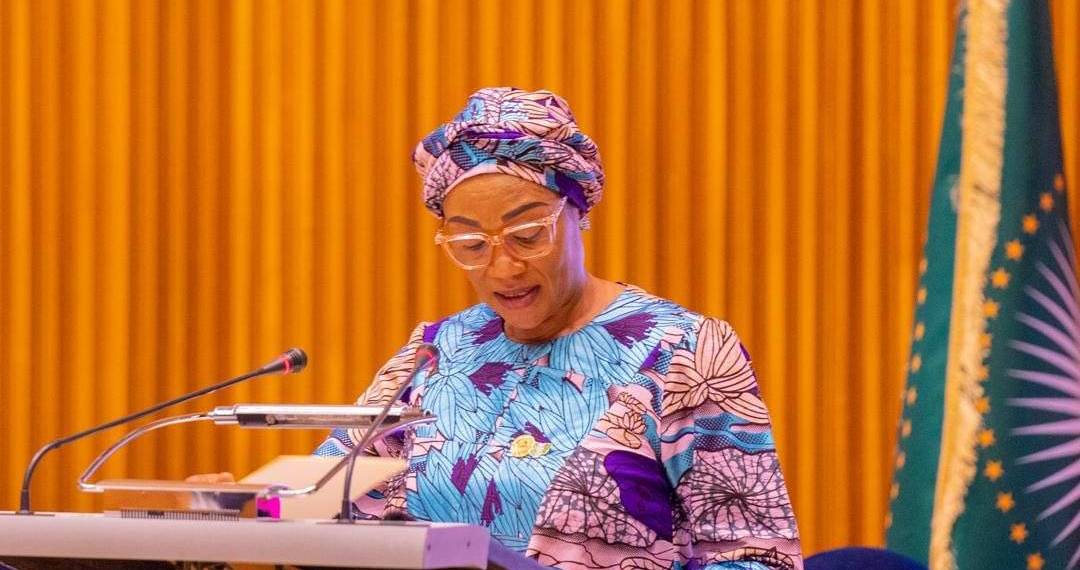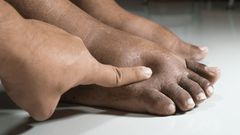In a pivotal move to address period poverty among young girls in Nigeria, First Lady Oluremi Tinubu has launched a sweeping campaign to provide free menstrual hygiene packs across the country. The programme, aptly named ‘Flow with Confidence’, officially commenced in Gombe State and is designed to ensure schoolgirls, especially those in rural and underserved regions, no longer have to skip classes for lack of adequate sanitary products.
According to a statement released by Busola Kukoyi, Senior Special Assistant on Media to the First Lady, Mrs Tinubu described menstrual health as fundamental to educational equity. “In today’s modern world, no girl should have to miss school because of her inability to afford sanitary products,” she said, reiterating the campaign’s commitment to making menstrual hygiene management a right, not a privilege.
The First Lady further recognized the harsh realities many Nigerian girls face during their periods—some are forced to use unsafe materials or remain absent from school altogether, highlighting how this perpetuates gender inequities and hinders national development efforts. She emphasized, “It is unacceptable that, in this era, barriers like these still exist. Through this intervention, under the Renewed Hope Initiative’s education framework, we aim to give every girl the confidence and dignity she deserves.”
A Closer Look at the ‘Flow with Confidence’ Initiative
The initiative’s operations are comprehensive and targeted. According to Mrs Tinubu, each of Nigeria’s 36 states and the Federal Capital Territory (FCT) is set to receive 10,000 disposable sanitary packs, intended as a one-year supply for 10,000 girls per state. Distribution will be conducted through a combined effort of state First Ladies and Renewed Hope Initiative coordinators, ensuring that the hygiene products reach even the most remote communities.
At the launch event in Gombe, Mrs Tinubu handed over the consignments to the state’s First Lady, Asma’u Yahaya, outlining clear directives for equitable distribution. According to state officials, a focused strategy will prioritize rural schools, often sidelined in national interventions. “Every beneficiary is to receive enough products to last a whole year, so they don’t have to worry about access or affordability,” Mrs Tinubu explained.
Community involvement is also at the heart of the campaign. The First Lady called on traditional rulers, religious leaders, and community heads to monitor the distribution process, ensuring that the pads reach the intended recipients and preventing diversion. This robust, multi-stakeholder approach is seen as essential for combating period poverty—a challenge that, as reported by United Nations agencies, impacts millions of women and girls worldwide who cannot afford menstrual products or safely manage their periods due to lack of water and sanitation facilities.
Wider Context: The Struggle Against Period Poverty
Period poverty—defined as the lack of access to sanitary products, menstrual hygiene education, toilets, hand washing facilities, and, or, waste management—remains an endemic problem in Nigeria and much of Africa. According to a 2021 report by UNICEF, one in ten African girls miss school during menstruation, with some dropping out entirely due to inadequate hygiene management and cultural stigma.
Experts, such as Dr. Aisha Adamu, a public health specialist at the University of Maiduguri, highlight that the root causes are multifaceted: “It’s not just about product affordability. In many communities, myths and taboos prevent girls from seeking help during their periods. When compounded by poor access to safe water and sanitation, the health risks become enormous.”
While providing sanitary pads is a crucial step forward, local NGOs caution that comprehensive menstrual hygiene education and infrastructure improvements are needed to create lasting change. “Without toilets in schools and safe places to change, girls will continue to miss out,” said Blessing Okoro, coordinator of a grassroots initiative in Enugu.
Government and Community Reaction
Senior government officials have applauded the ‘Flow with Confidence’ initiative. Muhammad Pate, Coordinating Minister of Health and Social Welfare, and Yusuf Sununu, Minister of State for Education, both pledged to expand support, promising additional resources and collaboration to reach even more girls in Nigeria’s underserved areas.
Gombe State Governor, Inuwa Yahaya, commended the First Lady’s efforts, citing her “consistent interventions across key sectors, including health, education, agriculture, and economic empowerment.” The Governor argued that this kind of program directly addresses the Sustainable Development Goals (SDGs) on gender equality, quality education, and good health.
Reactions among educators and parents have also been largely positive but tempered with calls for sustainability. “One-time distributions will help, but we need recurring supplies and solid monitoring to make sure girls aren’t left behind in the future,” said Fatima Ibrahim, principal of a rural secondary school in Niger State.
Building on Local Values: The Role of Community Elders and Traditional Leaders
In a country where traditional and religious leaders wield significant influence, the success of public health interventions often depends on their buy-in. By actively engaging these leaders, Mrs Tinubu’s initiative seeks to overcome the pervasive silence and stigma on menstruation—an often unspoken topic in many cultures.
Community efforts are expected to transform perceptions. For example, the Emir of Akko, Umaru Muhammad Atiku, underscored this during Mrs Tinubu’s visit by conferring on her the traditional title of Sarauniya Yakin Kumo (Queen Warrior of Kumo), honouring her advocacy for women’s health and empowerment.
Beyond Pads: Linking Menstrual Health to Economic and Social Growth
The broader vision, as outlined by the First Lady at the opening of the maiden Gombe State Health Summit, is to reposition health from a charity-based service to a driver of national growth and economic development. Citing global evidence, she argued, “Investing in girls’ health and education produces lifelong dividends for families and the nation as a whole.” She called for sustained partnerships between government, development agencies, and the private sector to scale up solutions and improve health outcomes for all.
Comparatively, several African countries—such as Kenya and South Africa—have also initiated free sanitary pad programmes, with varying degrees of success. According to a 2022 African Development Bank study, sustained government funding, local manufacturing of pads, and community-driven education efforts are key determinants of long-term impact. Stakeholders in Nigeria hope to replicate and adapt these best practices, while learning from earlier challenges faced elsewhere on the continent.
What’s Next? Sustaining the Fight Against Period Poverty
While the ‘Flow with Confidence’ project provides an encouraging blueprint, its long-term success will depend on transparent distribution, community feedback, regular impact reviews, and an ongoing commitment to scaling menstrual health interventions. Experts urge state governments and private sector partners to play a greater role in subsidizing or producing low-cost sanitary products locally, which could drive down costs and increase access.
As the programme unfolds, many in Nigeria and across Africa will be watching to see how such initiatives can be made truly sustainable, transformative, and inclusive. With millions of girls still facing the specter of period poverty, intensifying local innovation and honest dialogue around menstrual health has arguably never been more urgent.
How do you think initiatives like ‘Flow with Confidence’ can best be sustained, and what more should be done to combat period poverty in Nigeria and across Africa? Drop your thoughts in the comments and follow us for future updates on health and education in West Africa.
Do you have a story, tip, or perspective on period health or education in your community? We invite you to share or sell your story! Contact us at story@nowahalazone.com and get your voice heard.
For support and inquiries, email us at support@nowahalazone.com.
Stay connected for more insightful updates—follow us on
Facebook,
X (Twitter), and
Instagram!










